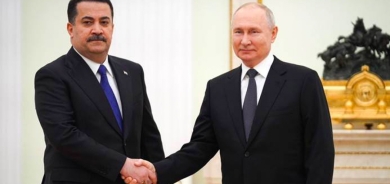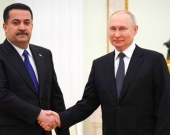Iraqi Government's Border Fence Decision Sparks Protests from Locals

The Iraqi government's recent decision to close the border with Iran by erecting a fence has triggered widespread protests among local residents. The move, intended to fulfill a security agreement with Iran, has stirred concerns among farmers and livestock raisers who fear the potential negative impact on their livelihoods.
The decision to install a barbed wire fence along the border was made in accordance with a security pact between Iraq and Iran signed in March 2023. This agreement aimed to address security concerns raised by Tehran, particularly regarding the activities of Iranian-Kurdish opposition groups along the border regions.
However, the implementation of this decision has faced vehement opposition from residents living in border villages such as Kawta in Halabja. Many locals argue that the proposed fence would disrupt their farming and livestock raising activities, as well as sever familial ties that have existed across the border for generations.
Hamid Kawtayi, a farmer from Kawta village, emphasized the longstanding peace in the area since the devastating chemical attack in 1988, questioning the necessity of the border fence for security purposes.
Teenagers, reportedly from the local community, have taken action against the installation of the fence, removing iron poles placed by government workers. Concerns have been raised about the lack of consultation with village leaders and the potential impact on tourism in the area.
Abdulrahman Husen, another farmer, expressed worries about losing access to pastures if the border fence is erected, highlighting the challenges faced by those dependent on livestock farming.
Sabur Ahmad, a local beekeeper, lamented the prospect of being unable to tend to his beehives along the Sirwan riverbank, stressing the detrimental effects on his livelihood.
Chro Sharif, a member of the Iraqi parliament from Halabja, joined local protests and conveyed the discontent of residents to the Iraqi government. Sharif urged the government to halt the construction of the fence until the concerns of the people are addressed.
The Iraqi government's decision comes amidst escalating tensions between Baghdad and Tehran, with Iran previously threatening military action if Iraq failed to fulfill the terms of the security agreement.
As tensions simmer over the border fence issue, local residents in border villages like Kawta continue to voice their opposition, citing concerns about the potential impact on their livelihoods and the disruption of longstanding community ties across the border. The Iraqi government faces mounting pressure to address these grievances and reconsider its approach to border security measures.














